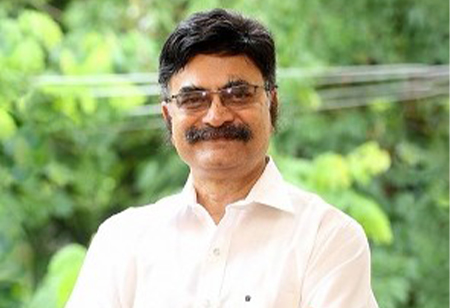-
Er. Koneru Satyanarayana, Chancellor, KL Deemed to be University, in an exclusive interview with Higher Education Review magazine, shares his insights on overcoming the challenges in modern education, upcoming trends in the Indian Education System, prioritizing technology to improve student performance and more Over the past four decades as KLEF bloomed into a full-fledged university, Satyanarayana has been incrementally involved with education management and digitalizing resources.
How do you apply ancient education wisdom to overcome challenges in modern education?
It is essential to be flexible, adaptable, and willing to embrace new approaches for teaching and learning and overcome challenges in modern education. The modern education system must embrace technology and should make learning more accessible, engaging, and effective and should encourage collaboration, and promote critical thinking. We teach a collaborative learning approach at our University where a student learns from teachers and each other. We encourage moral and ethical behavior which is the core values of the ancient learning system.
The important challenge in the Indian education system is its outdated curriculum, and redundant teaching methods, which are not aligned with the needs of the modern world. Another critical challenge is the gap between the current education and the industry requirement. We offer an updated curriculum that is specially designed to meet Industry standards. Our educators are skilled with updated pedagogical changes; adopt the latest teaching methodologies to provide hands-on guidance to our students.
Enlighten us on the upcoming trends in the Indian Education System in 2023.
The Indian Educational environment has changed into a learning space where every section instructs us to better comprehend concepts and procedures. The educational trend in 2023 is moving towards online and hybrid learning. From schools implementing online learning to higher education programs that are being delivered online, the education sector has improved substantially, and practical learning experience is given the utmost importance. This trend will increase access to education in the remotest of regions. Another trend is the popularity of vocational and skill courses that offer a diverse range of technical skills and emphasize industry-ready skilling programs. This helps the student to prepare themselves as per the industry standards and expand their skills.
Why should the Indian education system prioritize technology to improve student performance?
A pivotal impact of technology on student performance has increased their interactivity and class engagement. The technology has enhanced overall comprehension, practical learning, and time management, thereby increasing the students' overall productivity. Modern technology has significantly reshaped the entire education system. The digitally empowered classrooms have made education accessible to all those who want to learn across the world, anytime, in any subject, and anywhere. Technology has added to the accessibility of education and uniform engagement. Instead of a tutor, students can now have access to online educational materials, which generate an inclusive learning experience.
Online classrooms, virtual reality courses, and game-based classrooms have enhanced students' learning and innovative capacity. With the help of technology, students can access a personalized learning environment and learn at their own pace.
What are some challenges and solutions that the Indian educational system, students, and teachers encounter?
Many students in India do not have access to quality education due to poverty, social barriers, and inadequate infrastructure. Adequate investment in the educational domain will help in increasing the efficiency and productivity of the manpower. Ultimately, well-educated people help in accelerating the pace of economic development resulting in the growth of the country.
Though the government has introduced many schemes to overcome this challenge, it is still a long road ahead. Another challenge is too much emphasis on grades and ignoring extracurricular activities as a detour. This hampers the overall development of students. The solution to these challenges is to work towards the holistic development of students and teach strong values and create a conducive environment for better learning.
🍪 Do you like Cookies?
We use cookies to ensure you get the best experience on our website. Read more...

